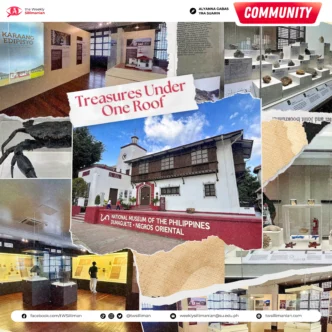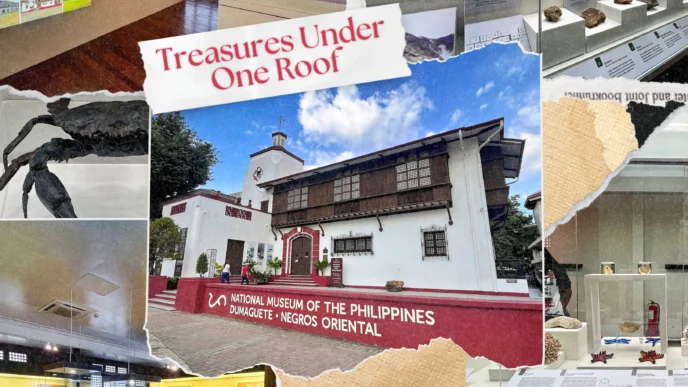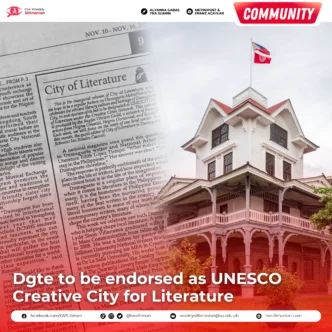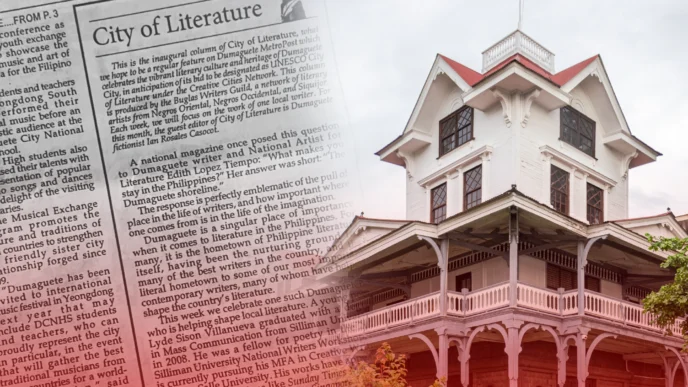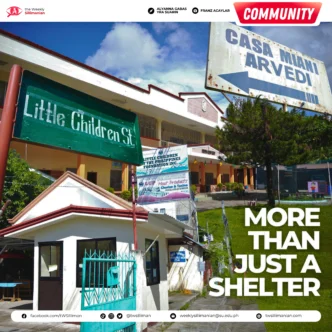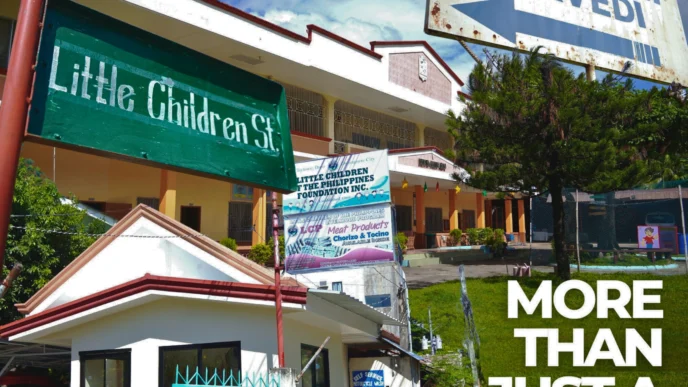By Alyanna Gabas and Yra Suarin
Dumaguete City is currently preparing its bid for the United Nations Educational, Scientific and Cultural Organization (UNESCO) Creative Cities Network (UCCN) under the ‘City of Literature’ category.
Led by the city’s Local Government Unit (LGU), Negros Oriental’s Department of Trade and Industry (DTI), and the Buglas Writer’s Guild, the technical working group is still making the portfolio for the application.
Applications for the designation to highlight the city’s literary heritage is due on March 3.
Katinka Visitacion, a Silliman University creative writing major and core team member of the project, shared some updates regarding the bid.
“We are currently on our pre-bid application stage! […] Only a few weeks ago did UNACOM [Philippine National Commission for UNESCO] visit, to help us understand the process in full. The shooting for the promo video is also underway,” she said.
Jireh Catacutan, another core team member of the project, stated that they are also working on other requirements needed for the application.
“In order to kind of stabilize, or like establish pala the Dumaguete city of literature, they already started the Duma Lit Fest [Dumaguete Literature Festival] last year,” he said.
The Dumaguete Literature Festival hosted several literary symposiums and displayed works by local writers along with those from outside Negros Oriental.
Moreover, Catacutan noted the recognition could positively impact the community.
“If we get recognized, we can connect with other cities of literature, which would be great, not only for our local writers, but also kind of boost the economy of Dumaguete City.” he added.
Under the Office of the Mayor by the City Tourism, the project’s nomination was publicized last Oct. 31. by the DTI, in collaboration with the National Commission for Culture and the Arts (NCCA).
A bid for UCCN is a city’s formal application to join UNESCO’s global network of cities that prioritizes creativity as a key driver for sustainable development.
History of the Bid
Ian Casocot, a Palanca Awardee, submitted the preliminary bid to the UNACOM by filling out a questionnaire.
“Based on the applicant cities’ answers on that questionnaire, they chose the final cities in the Philippines that they would endorse to the UNESCO,” he said.
Furthermore, Casocot added that while he speaks about Dumaguete as a city of literature, it was the initiative of an institution that motivated him to pursue the project.
“I again talked about it [Dumaguete as City of Literature] and the DTI people were there and they were very interested. […]. In August last year, […] they called me up. […] So, we had a meeting and we [concluded] ‘let’s go, let’s apply for the city of literature’, so it was actually their initiative,” he stated.
Casocot explained that the idea of Dumaguete becoming a city of literature began years ago during his travel abroad, where he saw similarities between Dumaguete and an established literary city.
“The city of literature nga UNESCO really came to me in 2010 because I was selected as the Philippine representative to the international writing program in Iowa. […]. The thing about Iowa is that it’s very much like Dumaguete, it’s a very small city.” he noted.
While Iowa was recognized as a city of literature, it has “only one official bookstore” in the area.
Challenges in Preparing the Bid
The preparation of Dumaguete’s bid for the UNESCO Creative City of Literature designation encountered several challenges.
Casocot noted sectors that were identified as challenges in the bid preparation.
“It is only the academe that can really put in a good translation program in the city,” he said.
He also added that, “The publisher thing is actually our most pressing, it’s not a challenge, because a lot of the bid is actually all about planning, like what can we do in the future.”
Despite having an allocated budget, challenges within the government made securing funds difficult.
“I don’t know if this is official, but a lot of literary events in the Philippines actually have been defunded because of the whole Sara Duterte. […] So, politics can actually affect culture in a big way,” he said.
Visitacion also explained the importance of having enough funds for the project.
“Every and all hurdle[s] encountered in this journey could absolutely be jumped over should there be dedicated funding,” she emphasized.
When asked how the public can support the bid, Visitacion noted that community involvement plays a significant role.
“There are online campaigns set to appear anytime now, but more than anything else: attend the festivals, the silent book clubs, the plays, the screenings – be a part of the many! If you have a story in your heart, let it be known!” she said.

